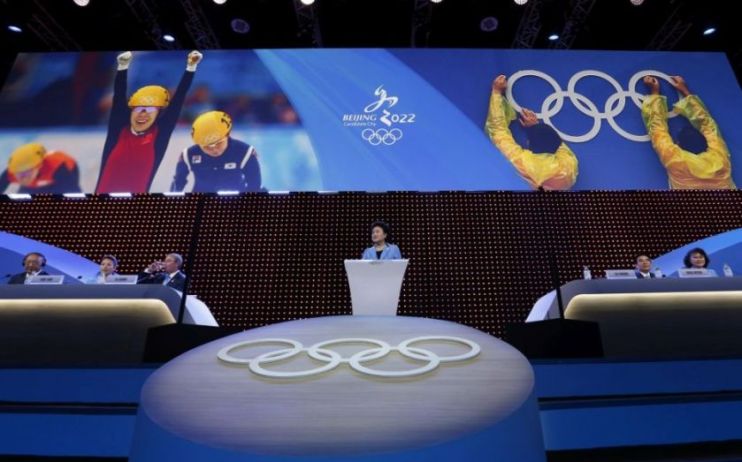Australia joins US in boycott of Beijing Winter Olympics as China hits back: ‘They violate Olympic spirit’

Australia’s prime minister said this morning the country will join the US in a diplomatic boycott of the Beijing Winter Olympics over human rights concerns.
Scott Morrison said it should come as no surprise that Australian officials would boycott the event after the nation’s relationship with China had broken down in recent years.
He added Australian athletes would still be able to compete.
“I’m doing it because it’s in Australia’s national interest. It’s the right thing to do.”
Scott Morrison
As well as citing human rights abuses, Morrison said China had been very critical of Australia’s efforts to have a strong defence force in the region “particularly in relation, most recently, to our decision to acquire nuclear-powered submarines”.
On Monday, White House press secretary Jen Psaki told reporters that the Biden administration will fully support US athletes competing at the Games but will not dispatch diplomats or officials to attend.
Ms Psaki said the US has a “fundamental commitment to promoting human rights” and that it “will not be contributing to the fanfare of the Games”.
China hits back
China has accused the US of violating the Olympic spirit after President Joe Biden’s administration announced a diplomatic boycott of the Beijing Winter Games over human rights concerns.
Rights groups have pushed for a full-blown boycott of the games, accusing China of rights abuses against ethnic minorities.
The US decision falls short of those calls but comes at an exceptionally turbulent time for relations between the powerhouse nations and was met with a barrage of criticism from China.
Foreign ministry spokesperson Zhao Lijian told reporters on Tuesday the US was attempting to interfere with the Beijing Games “out of ideological prejudice and based on lies and rumours”.
He added the boycott “seriously violates the principle of political neutrality of sports established by the Olympic Charter and runs counter to the Olympic motto ‘more united’.”
As he did the previous day, Zhao vowed that China would respond with “resolute countermeasures” but offered no details.
“The US will pay a price for its practices,” he said. “You may stay tuned for follow-ups.”
Boycott
The diplomatic boycotts come as the US attempts to thread the needle between stabilising difficult relations with Beijing and maintaining a tough stance on trade and political conflicts.
The US has accused China of human rights abuses against Muslim Uyghurs in northwest Xinjiang province, suppressing democratic movements in Hong Kong, committing military aggression against the self-ruled island of Taiwan and more.
Beijing has denounced US criticisms and punitive sanctions as interference in its internal affairs and slapped visa bans on American politicians it regards as anti-China.
Zhao warned the US to “stop politicising sports” and cease what he said were actions undermining the Beijing Winter Olympics, “otherwise it will undermine the dialogue and cooperation between the two countries in a series of important areas and international issues”.
The Chinese Embassy in Washington dismissed the move as posturing in a tweet.
“In fact, no one would care about whether these people come or not, and it has no impact whatsoever on the #Beijing2022 to be successfully held,” the embassy said.
Australia’s Prime Minister Scott Morrison, whose relations with China have nosedived in recent years, said on Wednesday his government would join the US in the diplomatic boycott.
New Zealand said on Tuesday it will not be attending the games at a diplomatic level, but that it made the decision earlier due mostly to pandemic travel restrictions.